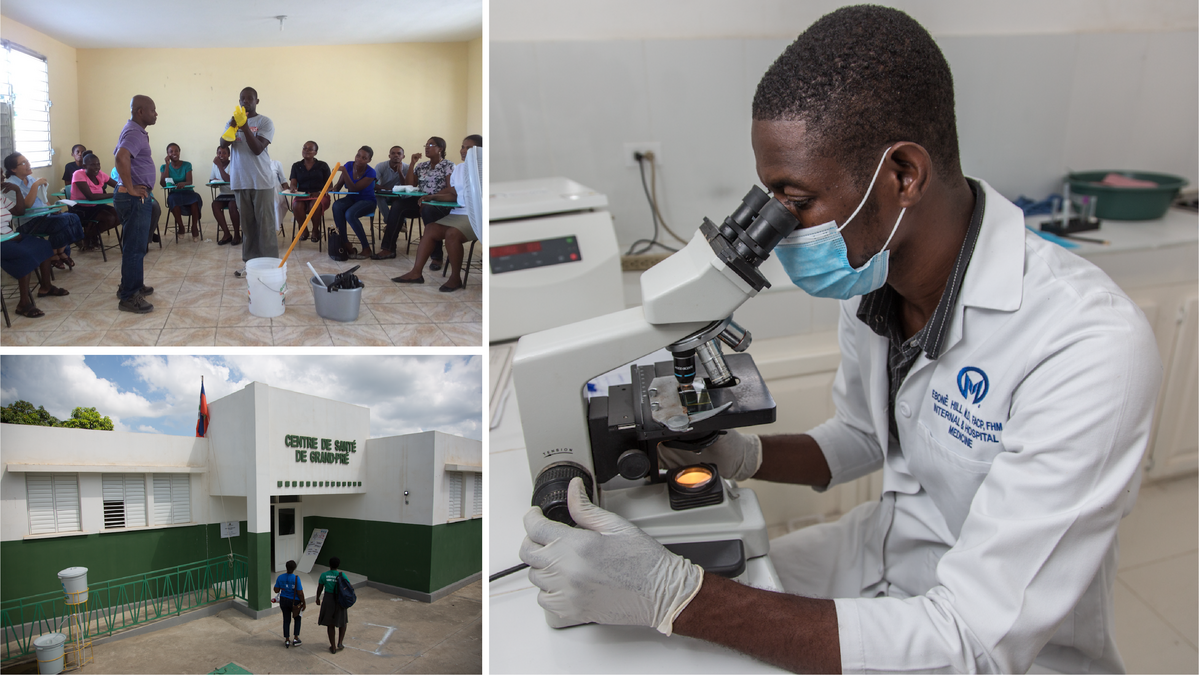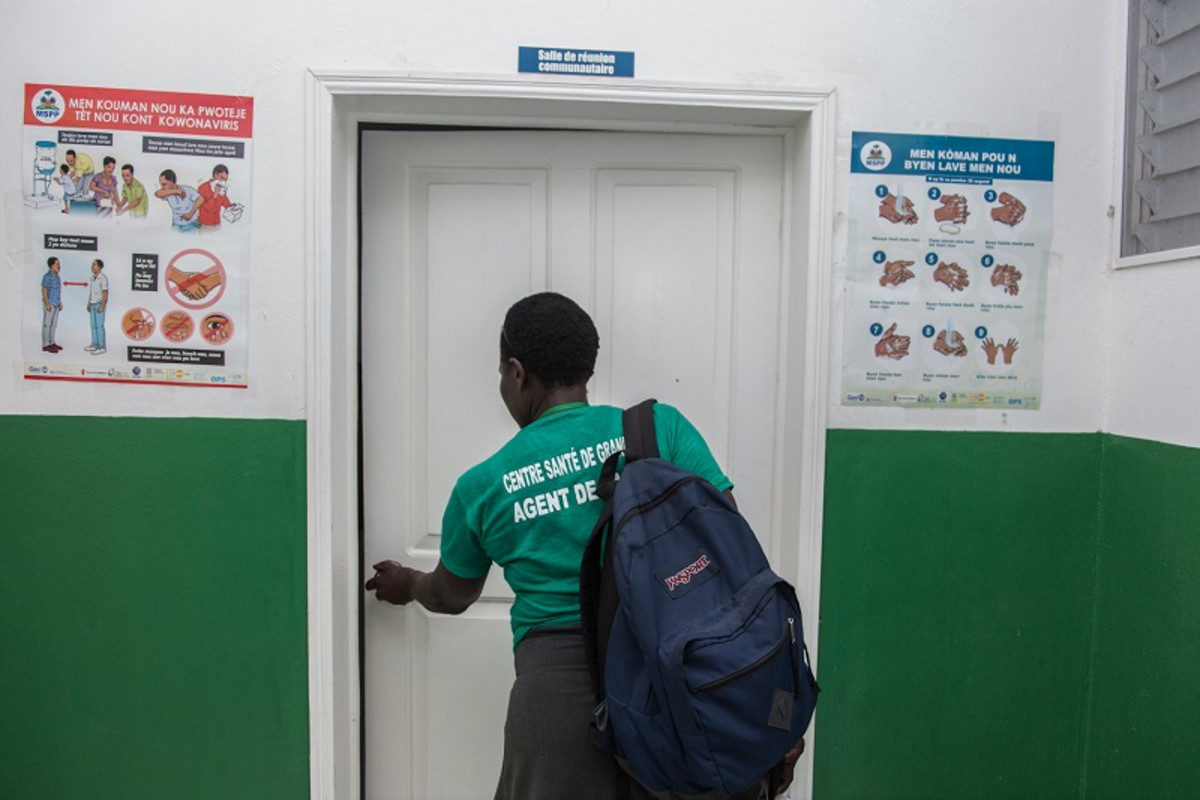
The ACOSME project has been rolled out in Haiti’s Département du Nord by the International Health Unit (USI) and the Centre for International Studies and Cooperation (CECI), in partnership with the Direction sanitaire du Nord (DSN) of the Ministère de la santé publique et de la population (MSPP). One of the project’s main goals is to make a permanent reduction in the Département du Nord’s infant/maternal mortality and morbidity rates. As part of this effort, the USI and CECI are offering training activities for healthcare service providers and managers.
Providing training activities aimed at boosting local capacities is one of the development solutions achieving the greatest long-term impact. Because meticulous planning and implementation is essential to the success of such activities, the USI has adopted a pioneering approach that sets ACOSME apart from other similarly oriented projects. Such an approach ensures that support provided to healthcare institutions is effective and quantifiable. This means planning the procedures to be employed before, during and after training, with the dual goal of maximizing each activity’s impact and lasting effect. In other words, the three pillars of the USI’s strategy for ensuring sustainable improvement are: in-depth understanding of local issues, strategic teaching and a method for validating and maintaining results.
Applying the Evidence and Adapting to the Situation
ACOSME’s comparative analysis of the situation in the field with respect to WHO standards and prior MSPP initiatives has served in drawing up a list of training requirements for each staffing category and area of practice. Needs were then prioritized to determine which activities would have the greatest impact on the delivery and quality of services for the public. This initial study defined four fields of expertise—human resources, medical services, non-medical care services and gender equality—to be developed. Furthermore, teaching goals and training strategies, targeted personnel, training activity schedules and follow-up mechanisms had to be defined. All this work was done in close conjunction with the DSN and precisely tailored to the actual situation.
Innovative Teaching
Once training activities have been carefully selected, a customized teaching strategy must be adopted to expand healthcare capacity. For ACOSME, the USI used a “learning by doing” strategy, with activities delivered at service provider workplaces. This strategy is specifically designed for each health centre’s needs, since these training programs are offered on site. It enables targeted service providers to apply what they learn directly, with the usual tools and resources available in their workplace. Furthermore, since care services are often limited, providing on-site training lets service providers continue treating patients during such sessions. This approach also helps establish bonds of trust with healthcare providers and more effective responses to such delicate issues as conflict management or proposing adjustments to certain practices in line with each centre’s particular working environment.
Ensuring Long-Term Improvement
To supplement this approach and ensure that its results are maintained, the USI is also working on post-training challenges. An assessment of each training session outlines its successes, failures and options for improvement. At least two follow-ups (three and six months after each training program) are conducted to evaluate how effectively skills acquired has been implemented. Checklists, where appropriate, are also distributed to treatment centres to encourage application of such knowledge by targeted service providers and facilitate knowledge transfers, when there are staff changes.
With this three-pronged approach, the USI can provide training best suited to a site’s needs in terms of content and format, and most effectively ensure that the information provided is properly learned by those targeted.
“ACOSME is the first program I have seen in my professional career that does things differently than similar projects in the field. Its support to healthcare institutions is tangible despite the present difficulties with which they must contend,” said Clercyne Ferdinand, a nurse at the Hôpital de la Grande-Rivière du Nord, is a testimony obtained by the project team.
To date, 20 topics have been covered among a total of 424 participants (282 women and 142 men), including healthcare providers, managers and support staff in the 19 institutions targeted by ACOSME.

About ACOSME
Launched in 2016 by the International Health Unit (USI)/Centre for International Studies and Cooperation (CECI) consortium and produced in conjunction with Haiti’s Ministère de la Santé Publique et de la Population, the ACOSME project is designed to reduce infant/maternal mortality in Haiti, particularly in targeted sectors of the Département du Nord. The project is built on three pillars. The first is to improve the supply and quality of a range of essential services, including family planning, to meet the needs and protect the rights of mothers, pregnant women, newborns and children. The second is to improve the use of healthcare services by women, their families and young people. The third is to increase awareness of the Canadian public to issues pertaining to the health and rights of mothers, pregnant women, newborns and children under age 5 in Haiti.
The ACOSME project is being carried out with the financial support of the Government of Canada, through Global Affairs Canada.
Photos : George Harry Rouzier.